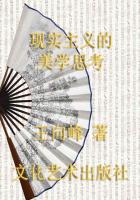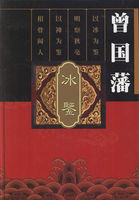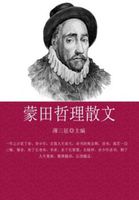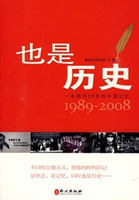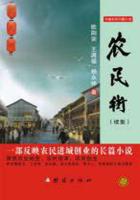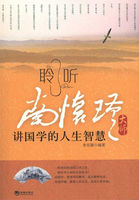A rule specially appropriate for showing up a fallacy is thesophistic rule,that one should draw the answerer on to the kind ofstatements against which one is well supplied with arguments:this canbe done both properly and improperly,as was said before.” Again,todraw a paradoxical statement,look and see to what school ofphilosophers the person arguing with you belongs,and then questionhim as to some point wherein their doctrine is paradoxical to mostpeople:for with every school there is some point of that kind.Itis an elementary rule in these matters to have a collection of thespecial ”theses” of the various schools among your propositions.Thesolution recommended as appropriate here,too,is to point out thatthe paradox does not come about because of the argument:whereasthis is what his opponent always really wants.
Moreover,argue from men”s wishes and their professed opinions.
For people do not wish the same things as they say they wish:they saywhat will look best,whereas they wish what appears to be to theirinterest:e.g.they say that a man ought to die nobly rather than tolive in pleasure,and to live in honest poverty rather than indishonourable riches; but they wish the opposite.Accordingly,a manwho speaks according to his wishes must be led into stating theprofessed opinions of people,while he who speaks according to thesemust be led into admitting those that people keep hidden away:forin either case they are bound to introduce a paradox; for they willspeak contrary either to men”s professed or to their hidden opinions.
The widest range of common—place argument for leading men intoparadoxical statement is that which depends on the standards of Natureand of the Law:it is so that both Callicles is drawn as arguing inthe Gorgias,and that all the men of old supposed the result to comeabout:for nature (they said) and law are opposites,and justice isa fine thing by a legal standard,but not by that of nature.
Accordingly,they said,the man whose statement agrees with thestandard of nature you should meet by the standard of the law,but theman who agrees with the law by leading him to the facts of nature:forin both ways paradoxical statements may be committed.In their viewthe standard of nature was the truth,while that of the law was theopinion held by the majority.So that it is clear that they,too,usedto try either to refute the answerer or to make him make paradoxicalstatements,just as the men of to—day do as well.
Some questions are such that in both forms the answer isparadoxical; e.g.”Ought one to obey the wise or one”s father?” and”Ought one to do what is expedient or what is just?” and ”Is itpreferable to suffer injustice or to do an injury?” You should leadpeople,then,into views opposite to the majority and to thephilosophers; if any one speaks as do the expert reasoners,lead himinto opposition to the majority,while if he speaks as do themajority,then into opposition to the reasoners.For some say thatof necessity the happy man is just,whereas it is paradoxical to themany that a king should be happy.To lead a man into paradoxes of thissort is the same as to lead him into the opposition of the standardsof nature and law:for the law represents the opinion of the majority,whereas philosophers speak according to the standard of nature and thetruth.
Paradoxes,then,you should seek to elicit by means of thesecommon—place rules.Now as for ****** any one babble,we havealready said what we mean by ”to babble”.This is the object in viewin all arguments of the following kind:If it is all the same to statea term and to state its definition,the ”double” and ”double ofhalf” are the same:if then ”double” be the ”double of half”,itwill be the ”double of half of half”.And if,instead of ”double”,”double of half” be again put,then the same expression will berepeated three times,”double of half of half of half”.Also ”desireis of the pleasant,isn”t it?” desire is conation for the pleasant:
accordingly,”desire” is ”conation for the pleasant for the pleasant”.
All arguments of this kind occur in dealing (1) with any relativeterms which not only have relative genera,but are also themselvesrelative,and are rendered in relation to one and the same thing,ase.g.conation is conation for something,and desire is desire ofsomething,and double is double of something,i.e.double of half:
also in dealing (2) with any terms which,though they be notrelative terms at all,yet have their substance,viz.the things ofwhich they are the states or affections or what not,indicated as wellin their definition,they being predicated of these things.Thuse.g.“odd” is a “number containing a middle”:but there is an ”oddnumber”:therefore there is a “number—containing—a—middle number”.
Also,if snubness be a concavity of the nose,and there be a snubnose,there is therefore a “concave—nose nose”.
People sometimes appear to produce this result,without reallyproducing it,because they do not add the question whether theexpression ”double”,just by itself,has any meaning or no,and if so,whether it has the same meaning,or a different one; but they drawtheir conclusion straight away.Still it seems,inasmuch as the wordis the same,to have the same meaning as well.
We have said before what kind of thing “solecism”is.” It ispossible both to commit it,and to seem to do so without doing so,andto do so without seeming to do so.Suppose,as Protagoras used tosay that menis (”wrath”) and pelex (”helmet”) are masculine:
according to him a man who calls wrath a ”destructress” (oulomenen)commits a solecism,though he does not seem to do so to otherpeople,where he who calls it a ”destructor” (oulomenon) commits nosolecism though he seems to do so.It is clear,then,that any onecould produce this effect by art as well:and for this reason manyarguments seem to lead to solecism which do not really do so,ashappens in the case of refutations.

